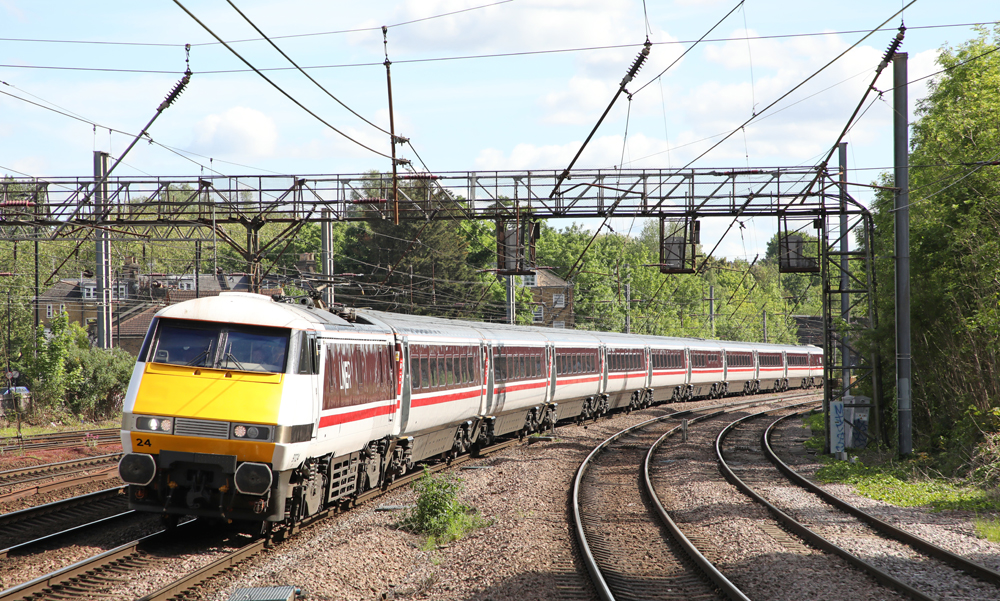
LONDON — The British election last week resulted in a landslide win for the previous opposition Labour Party, which won 411 seats, with the former Conservative government reduced to 121 seats in the 650-seat House of Commons. The new government has pledged to make some big changes to Britain’s railways, although in some ways the changes won’t be as big as they might appear.
The previous government had published plans for a new national rail authority to be called Great British Railways [see “British government plans major shake-up …,” Trains News Wire, May 26, 2021]. However, beyond planning work and selecting a city for it to be based in (Derby in central England), little had actually been done to make the plan a reality, as it wasn’t seen as government priority.
The rail industry and its development was a priority for Conservative Prime Minister Boris Johnson, elected in 2019, who championed schemes such as reopening some of the lines closed in the 1960s and ’70s, plus the HS2 high speed rail project. But after he was forced out of office by his own members in 2022, his successors had substantially less interest. The last Conservative Prime Minister, Rishi Sunak, actually cancelled a major part of the HS2 project linking Manchester to the system, traveling to Manchester to make the announcement [see “British government axes part of planned high-speed route,” News Wire, Oct. 4, 2023]. This was one of a number of policy choices that probably contributed to the election defeat, as many in Northern England saw this as a cut to their future infrastructure and didn’t approve.
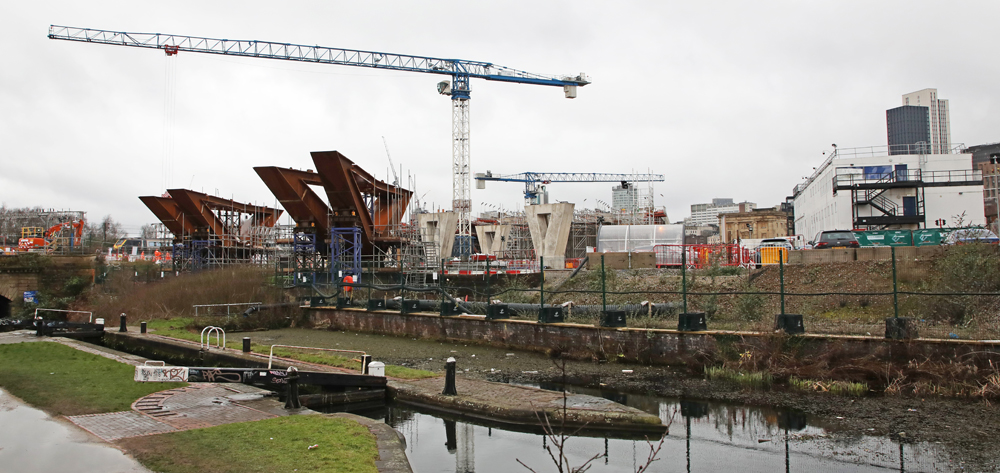
Campaign promises
The headline promise concerning rail by the new government during the election campaign was to bring all the contracted passenger rail companies in Britain into government ownership; in reality, many of them already are. The new government has pledged to set up the previously promised Great British Railways organization, and to simplify Britain’s immensely complex maze of rail fares. The new government says it will set the long-term strategy and infrastructure priorities, but then let Great British Railways — which will be staffed by industry professionals — get on with the job.
The breakup and privatization of the UK’s railways since the 1990s has resulted in costs increasing and substantial administrative costs as multiple separate companies interact with each other. This isn’t a point of debate, as the previous government’s review came to that conclusion, putting an annual price tag of £1.5 billion ($1.9 billion) on unnecessary costs. Public opinion polls regularly show that British consumers think rail privatization a mistake and that it has made using trains more complicated. For passengers, there is confusion as every train company sells tickets, as do third-party online sites like Trainline. Most travelers don’t realize they can actually buy almost every ticket from any of the operators, who are required to offer almost all fares at manned ticket counters and online.
As a result, by promising public ownership and simplified fares, the new government was offering something the majority of voters wanted — even if the detail of both changes was unclear to them.
Nationalization in a new form
The new government has announced it will take over control of the passenger train operators which have contracts awarded by government at no cost. This is not an old-style nationalization, with the government seizing or buying a private company. Instead, the government will wait for the contracts held by the remaining private operators to expire and not renew them, passing the task of running the train operation to a government-owned company. In almost every case, the equipment used by the train operators belongs to someone else — mainly specialist leasing firms or banks. Several of the previous private operators had passed to government control under the old government – which, unlike the new one, had an ideological preference for private operation, but realized that without offering an almost blank check, no private company was willing to take on the financial risks involved.
Rail passenger numbers in Britain are back at around 93% of the pre-COVID pandemic numbers, despite large numbers of commuters working from home two or more days each week. The total number of journeys, at 1.6 billion, is very close to the 2018 record of 1.8 billion, while revenue earned is almost the same in actual numbers at £10.3 billion / $13.2 billion (but around 10% lower allowing for inflation).
Fewer strikes?
The movement of the passenger operating companies to government ownership has been a long-held demand of rail trades unions. It is likely the industrial action that continues to cause disruption to passengers will be resolved by the new government – not directly by intervening, but by changing the instructions officials at the Transport ministry have been giving management of the passenger companies. As every contract operator — whether privately owned or already owned by a government company — is funded by government fees, they have been unable to make local agreements with their staff unless certain national conditions are agreed.
Many train engineers at multiple companies have refused to cut such deals and strike action remains possible, although there has been little in recent months. The disputes have been going on for several years and most engineers have not had a raise since 2019 despite record inflation in the cost of living.
What won’t change
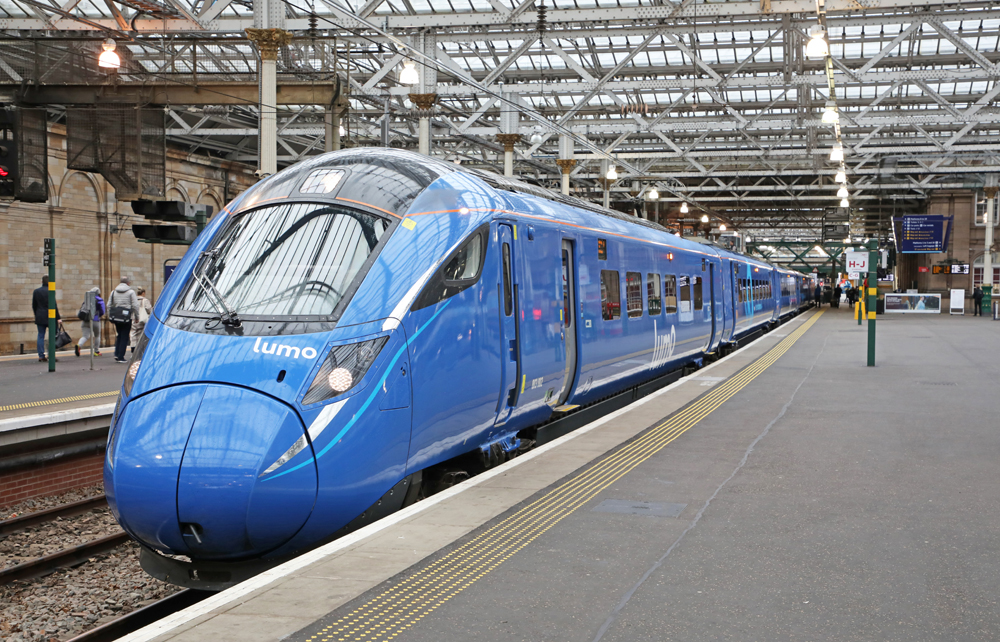
What will not change is also quite significant; most passenger equipment is owned by leasing companies and this will continue. Also to continue are commercial rail operations – e.g., passenger services run without government contracts under “open access” rules – using the national rail network and spare capacity not used by the contract operators. Most of these operations are relatively small scale, with fleets of five or six trains concentrated on routes that the main operators have either ignored historically or simply not provided with enough capacity.
Several new “open access: operators are at the planning stage. This includes a recent announcement from former contract operator Virgin Group, briefly part of the U.S. market when Brightline licensed use of the Virgin name. In May, Virgin submitted an application to operate on four open-access routes from London to cities in northern England; it is seeking to operate around 40 trains a day. This is unlikely to be welcomed by the new government, as some of the revenue it might gain would be from passengers switching from services financially supported by the government. Currently Virgin has no trains and no agreed network access slots.
Rail freight ownership will also not change – private freight companies will continue to operate services. It is possible that some of the investment the rail freight sector has been sought in recent years – in particular some line upgrades and electrification – will be delivered under the new government.
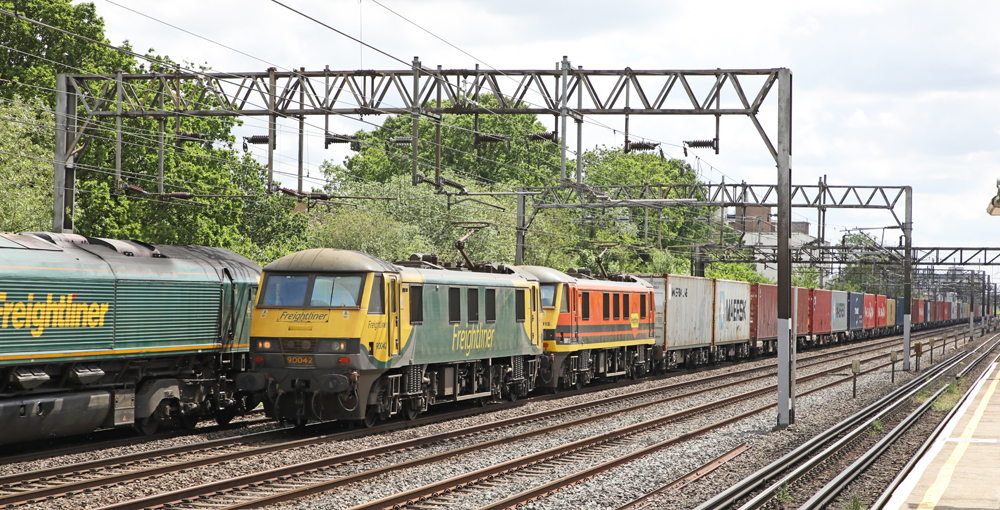
High Speed rail and investment
The new government supports the HS2 high speed line being built between London and Birmingham and opposed the previous government’s decision to cut the northern section to Manchester. However, this does not mean it will or can simply reinstate the plans. Most of the planning necessary legal work had been done but isn’t complete and was formally stopped just before the election was called in May.
Ever since the previous government’s decision to cancel the northern section of HS2 was announced, regional mayors in the cities affected have worked with private-sector companies on how something similar, but probably not called “HS2,” could be built. All those cities now have Labour party mayors, some of whom are influential national figures, and the potential route is almost entirely through districts represented by the new government in Parliament. It seems likely that some decisions to get construction under way will occur sometime in the next five years, although exactly what and when is unclear. Most of the expenditure would be in the longer term, mostly the 2030s.
The new government has said it is clear that there is little or no money for new projects – and if there were it would no doubt be spent on other areas like health or defense. Longer term, it is likely the new government will be more positive about investing in transit for big cities. London may benefit, as it has 50-plus-year-old “Tube” subway trains that need replacing, as well as plans for new rail routes.
— Updated at 6:20 p.m. CT to correct nature of Virgin-Brightline relationship, clarify Virgin’s open-access announcement.






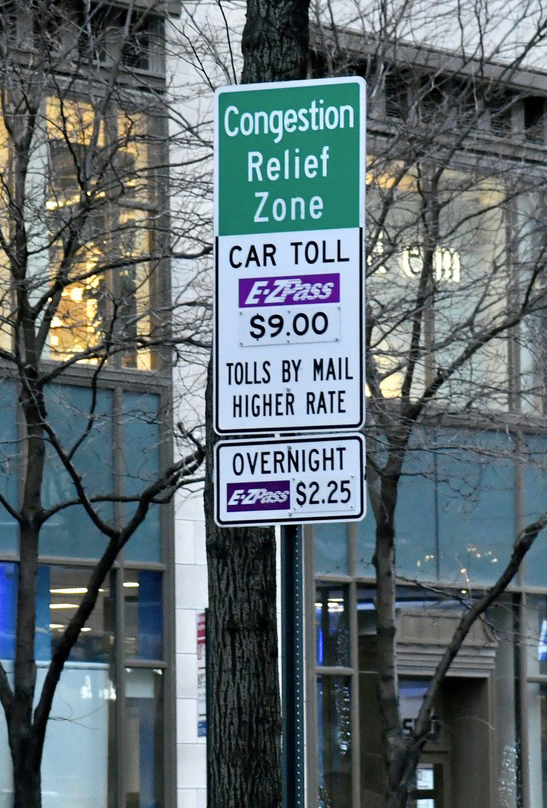
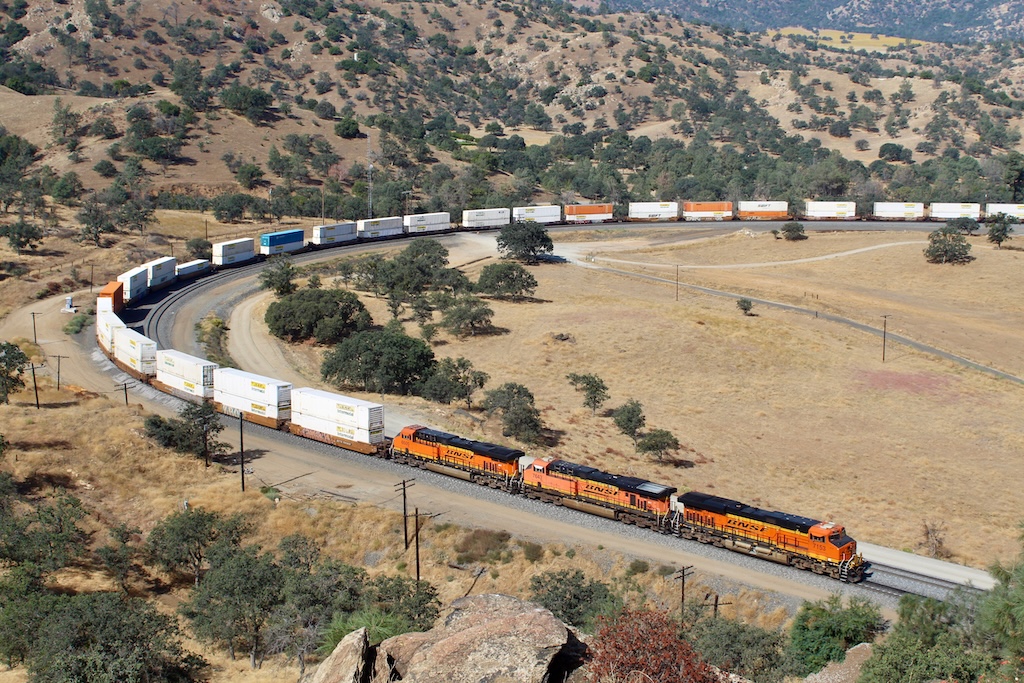
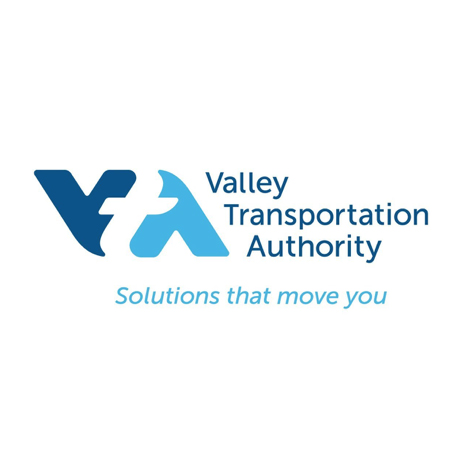





Wait. What’s going on. I AGREE WITH CHARLES LANDEY!?
Indeed. Rail privatization in Britain was idiotic and the way the Tories (under former PM John Major) implemented it was even more ridiculous. The entire thing was very British in that the intent was good but the implementation was absurdly complicated with far too many players with no hope of making a profit. So many companies went bankrupt on their contracts, including experienced players (such as subsidiaries of SNCF and NS).
Even the original owner of the infrastructure (RailTrack) went bankrupt and had to be rescued by the government after only 8 years and a bunch of deadly crashes.
Thanks Mike, for your post. In your opinion I’m a far-right right-wing wingnut extremist. You are correct. I’m all those things. However, I’m a retired engineer who favors logical constructs that don’t disintegrate in front of me.
My opinion on UK privitization was born on a platform at Birmingham twelve years ago. I’d been in England about two weeks. The trains were admirable. They were fine. For an American, the cost of a 15-day first-class England-only (not Wales or Scotland) railpass was next to nothing.
Unlike in US where I need separate tickets for Amtrak and METRA, the railpass didn’t differentiate between intercity trains and commuter trains. For a foreigner like me, this saved a lot of guesswork or missed connections.
Unlike other routes I’d ridden, a whole big bunch of carriers duplicated routes along the various r/w’s serving Birmingham, which is in the middle of England. My train to Reading could be one of a number of carriers.
I said to myself, “This is great! The system works! That is, it will work until the whole jerry-rigged thing falls apart.” Which as you say, Mike, came to pass in the years since my visit.
iansinclair22@gmail.com I’d be more enthusiastic about the idea… except that unhappily I remember “British Rail”. Which was a system which made Amtrak look like a stellar operation. What goes around…
“which will be staffed by industry professionals” Now there’s a new thought. Oh, but what a change that would bring to AMTRAK
In my view, this is a highly partisan interpretation of recent rail history in the UK and the likely impact of the newly elected government by a journalist who always put a critical slant on his coverage of the previous government but who seems uncritically supportive of the new government. There was much to be critical of in the performance of the previous government and many opportunities for the new government, but I do not believe that politically nuanced reporting is helpful or conducive to properly informed debated. I write this as a now-retired but previously senior professional in the UK rail industry for over 35 years.
Privitization in the UK was a Rube Goldberg contraption, meant to keep the trains running long enough for the government to come up with something more sensible and more permanent.
I’m not sure “privitization” was the right word. Maybe “balkanization” would be a better fit.
Always a pleasure to read a report by Keith Fender – Informative, complete, knowledgeable, and in proper English. The overseas version of Bob Johnston.
I also appreciate Keith’s thorough reporting and Trains international coverage.